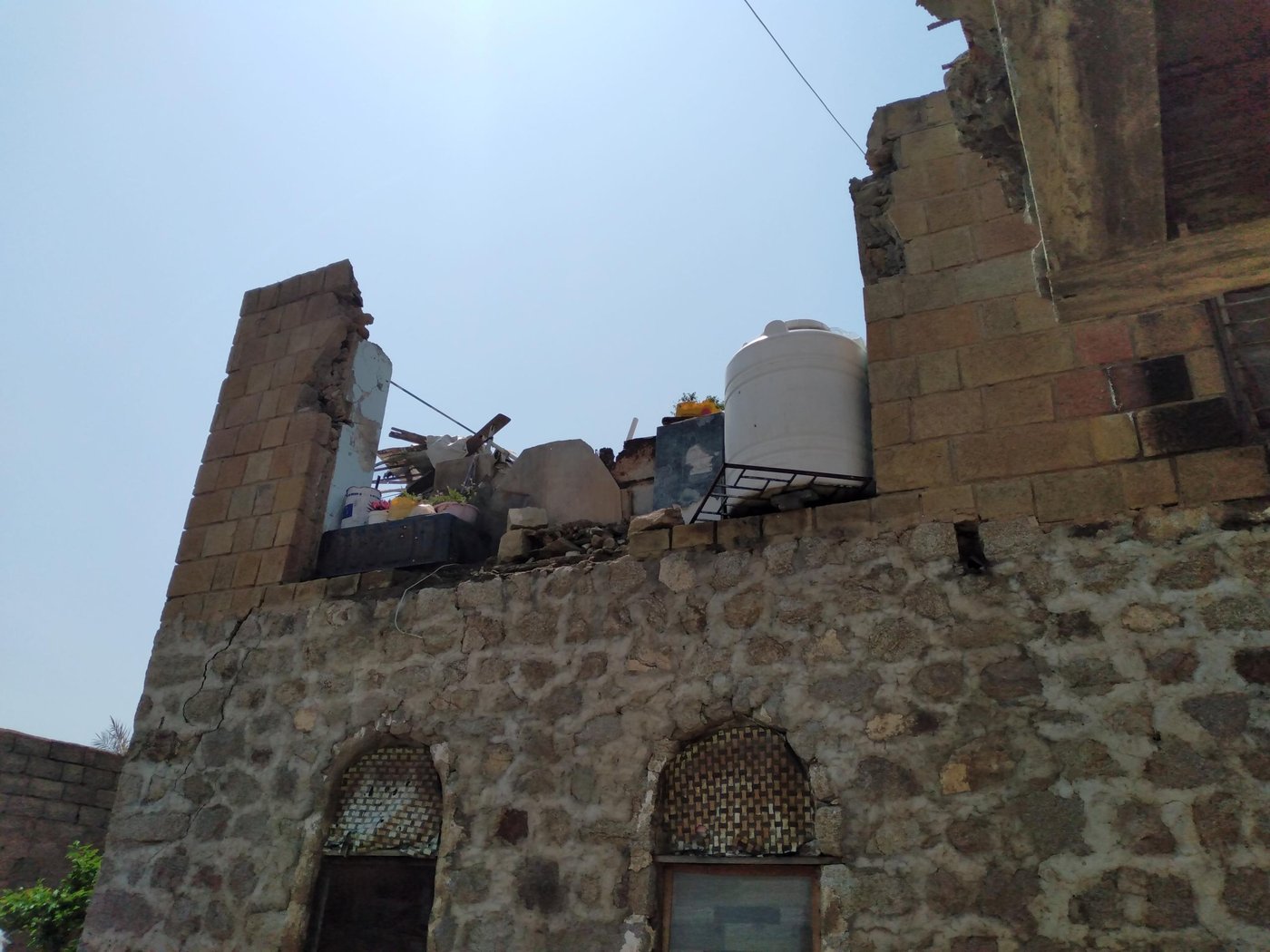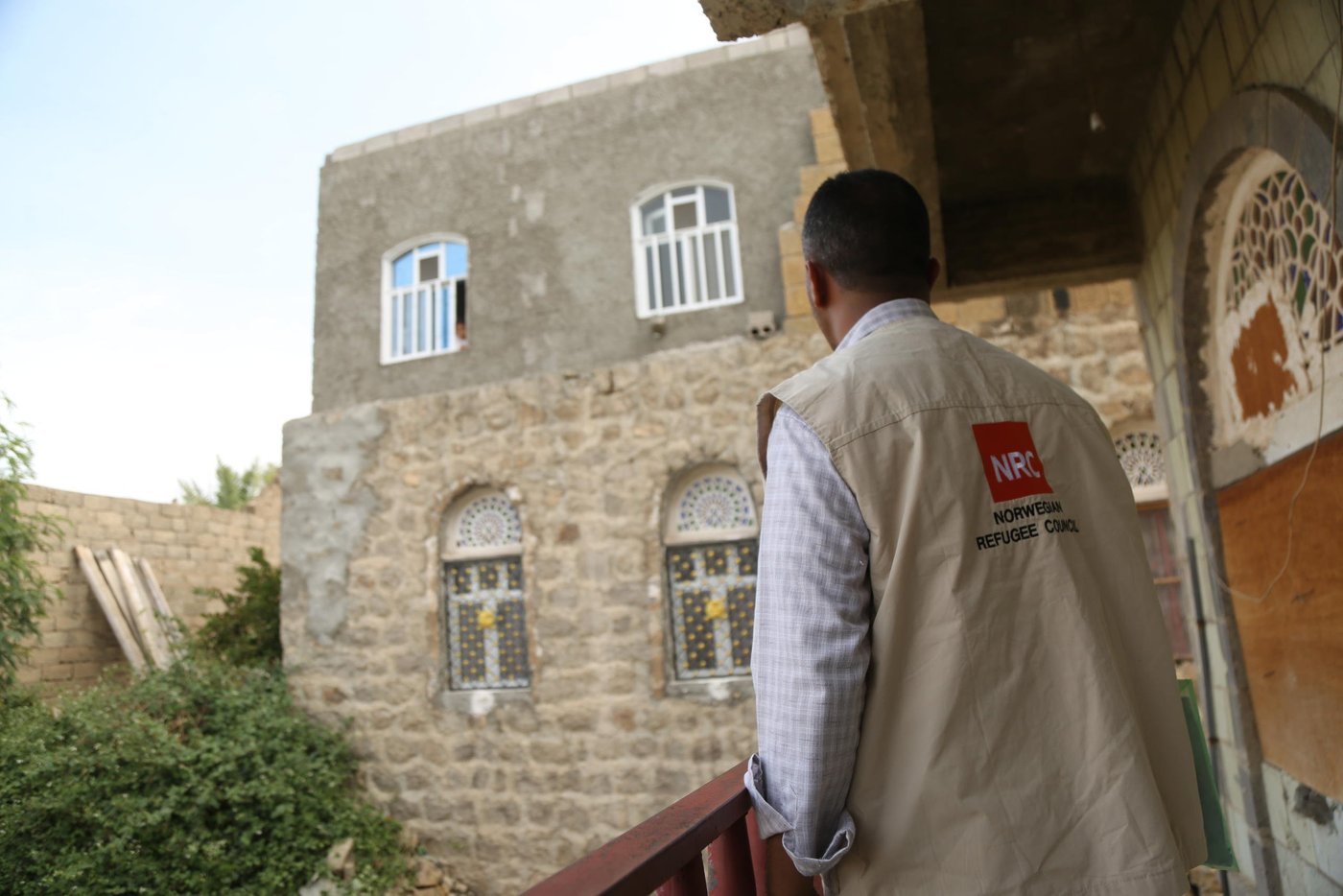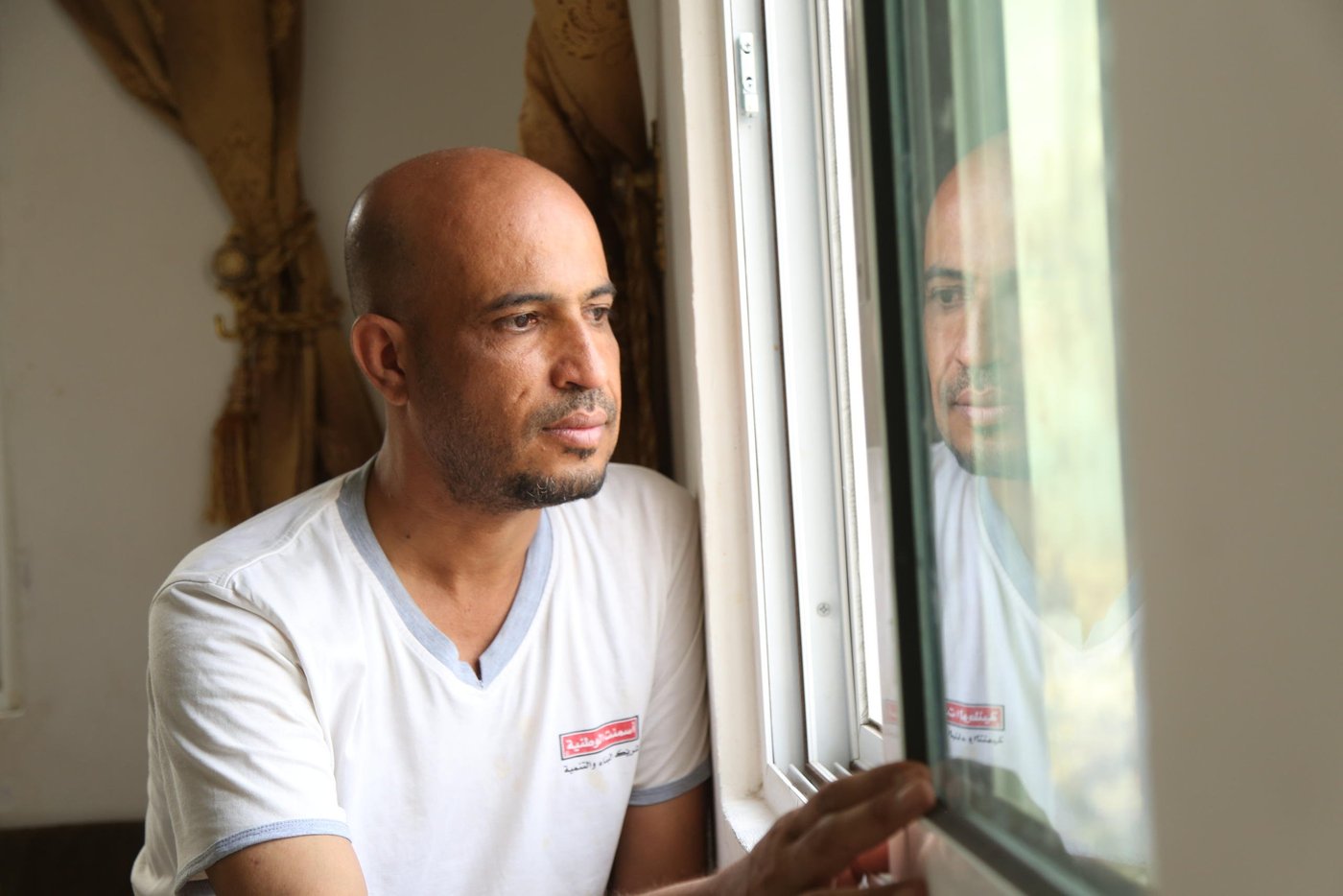Sameer Saeed, 47, was once a man with a steady job and aspirations for a secure future for his family. He worked at an oil station in Taiz city, and had inherited a home from his father so didn’t need to pay rent. Unfortunately, in 2015, his life was shattered by the outbreak of conflict.
"The conflict in Taiz not only robbed me of my job but also damaged my home," says Sameer, recalling the shelling that destroyed his family’s home.
“I was lucky that no-one was at home. I fled to another area of Taiz city. There I was injured by shrapnel, and sustained a disability that will not allow me to work again.”

Amidst the chaos and destruction, Sameer faced a devastating blow. A shrapnel injury left him with a physical disability, rendering him unable to work. Hopelessness engulfed him as he watched his family struggle, unable to provide for them.
For over eight years, Sameer took refuge with his stepmother, yearning for the day he could return to his damaged home.
"Life as an unemployed man with a disability was incredibly challenging," Sameer admits. "Access to basic necessities was sporadic, and our financial situation was dire. Rebuilding a home under these circumstances seemed like an impossible task."

Then came an unexpected lifeline. The Norwegian Refugee Council (NRC), with support from the Yemen Humanitarian Fund (YHF), provided 300 families in Taiz city with cash assistance to repair their homes in areas declared safe. Sameer’s family was one of those selected.
"Initially, I was sceptical when I heard about NRC's support," Sameer says. "Repairs were costly, and I couldn't imagine such a blessing falling upon me."
To his surprise and immense relief, Sameer received around USD 2,000 from NRC, and he embarked on the task of restoring his home.
"Returning home is an unmatched feeling," Sameer says. "The comfort and dignity of being back in my own space are immeasurable. No-one will know about my struggles, and I am no longer burdened by the weight of rent."
While the need for furniture, medicine and other necessities remains, Sameer emphasises that his primary goal of returning home has been achieved. "I can manage the rest," he asserts.

As Sameer gazes out his window, he finds solace in the sight of his neighbours returning to their rehabilitated homes. The lingering echoes of conflict and the loss of loved ones are inevitably intertwined with the memories of those who have survived.
"I choose to focus on the good times," Sameer says. "I have witnessed immense suffering, and now it's time to enjoy the rest of my life."
Sign up to our newsletter to read more stories from around the world.


